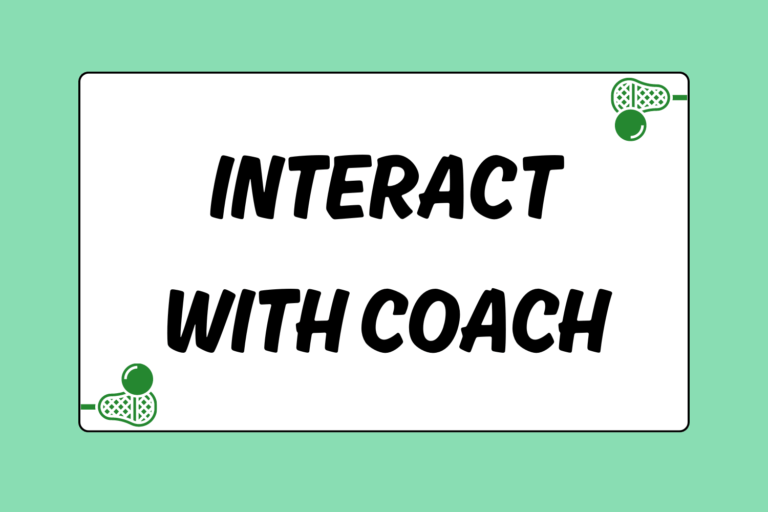Parent involvement (or lack thereof) in your lacrosse program can either be a help or a hindrance. When parents organize fundraising or transportation to and from games, you’ll love them. But when your fourth string attackman’s dad won’t stop complaining that his son needs more playing time, you’ve got a problem on your hands. This guide will examine and label the different types of problem parents, and how you, as the coach, should best deal with these situations.
Mr. Unrealistic Expectations
Everyone knows who we’re talking about here. There’s always that one (or more) parent who thinks their kid is the best thing since sliced bread. Sometimes these parents live vicariously through their children. They’ll ask you why junior isn’t a team captain, or why he isn’t starting. You have to be honest with these parents, without coming off as too rude or abrasive.
Some parents will feel that their kid has been slighted in some way by the coaching staff, and you have to be up front about what the player is capable of on the field, and why you made the decisions you did. Telling a parent what they want to hear in these situations only serves to feed the monster.
If Dad is mad that junior wasn’t named a captain or a starter, do your best to highlight his son’s positive traits, as well as those of the players who were named captains or starters. Still, you will have to be honest in giving a reason why junior may not have been the best choice for the elevated position. These types of parents will often tell you that their son is feeling really upset, or that he is mad and thinks he isn’t getting the recognition he feels he deserves. While those things may be true, it’s the player’s responsibility to convey that information to the coaching staff.
In many cases, the feelings of resentment and bitterness are coming from the parent, rather than the player. Sometimes parents will exaggerate a child’s true feelings, thinking they are helping the situation for the kid. Always be sure to talk to the player about what his parents have told you.
Coach Dad
One of the most uncomfortable situations a team can be in is when one of the coaches is also a parent of a player. Like it or not, other players on the team will think he plays favorites with his son, no matter the reality of the situation. As a coaching staff, you have to be extremely careful to treat all players the same and not show any biases toward particular players.
It’s very important to have the coach and his son sit down before the season and talk about their relationship as coach and player, and how it’s separate from their father-son relationship. The parents and child both have to understand that when the pads are on, dad becomes coach.
This situation is most often problematic when the coach’s son is playing an important role on the team that he may not deserve. Every dad wants his son to reach his full potential — and that’s fine — but do not let it happen at the expense of more deserving players. Every role on the team should be filled by the person most qualified for the job.
Be very clear with your fellow coach about how you expect him to treat players on the team. Nothing can destroy a team’s chemistry faster than a coach playing favorites, especially one playing favorites with his son. It’s not fair to the players on the team, and shouldn’t be tolerated.
Amazingly True Story
Syracuse coach John Desko’s son Tim Desko is a member of the Orange’s lacrosse team. The elder Dekso does not hesitate to give the younger one a piece of his mind, either! Tim has become an excellent attackman under the tutelage of his father, scoring over a point per game.
The Wannabe Coach
Some parents on the team have been watching lacrosse for a few years now, or maybe they even played back in their day, and they think they know enough about the game to offer you tactical advice. They’ll approach you after practice or a game, and give you their two cents about what’s going wrong with the team’s offensive or defensive strategy.
You have to be very upfront with these parents. Explain to them that you appreciate their advice, but that you feel confident in your own abilities as a coach to make sound decisions and do things the right way. Don’t tell them that they would be better off coaching their own team. This is rude, and a poor way to politely decline their advice. Even if you feel that their suggestion may be somewhat sound, allowing parents to have input into how you run your team can seriously undermine your authority and credibility with players. If you really feel that the parent knows what he’s talking about, ask him if he would consider being an assistant coach at some point in the future.
Be honest, but also be nice about telling these parents you don’t want them interfering with your team.
Preventing Parental Problems
Parental nuisances can quickly get out of hand and prevent your team from reaching its fullest potential. Don’t be shy about telling these parents you are the man in charge for a reason. Not every team will have parents that give you fits, but be prepared for the worst. Knowing how to deal with these types will alleviate a ton of stress that could stop you from focusing on coaching. Find the problem parents early and nip it in the bud!





